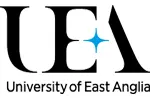We're moving! This site will be relocating to goingto.university in 2026. Please update your bookmarks to the new address.


the United Kingdom
University of East Anglia (UEA)| The award | How you will study | Study duration | Course start | Domestic course fees | International course fees |
|---|---|---|---|---|---|
| MSc | Part-time | - | - | - | - |
Study
This programme provides a sound foundation in contemporary development economics. It's unique as it integrates methods, research findings and new insights from behavioural and experimental economics. The MSc is taught by a team of internationally-respected development economists with a vast amount of experience, at the forefront of innovative development research internationally. The programme applies economic analyses to real-world problems, like poverty and underdevelopment, to identify effective policies.
Structure
This Master's course requires students to undertake compulsory and optional modules, an examination and to produce a dissertation. Optional seminars, workshops and sessions are offered throughout the programme for teaching and strengthening student essay and dissertation writing skills. The School of International Development addresses contemporary challenges via multi/interdisciplinary approaches, where research is organised into a series of Research Groups.
Teaching
The School of International Development at the University of East Anglia is a globally renowned department for teaching, research and consultancy on international development. Research in the School addresses challenges in developing and transition economies via disciplinary and multi/interdisciplinary approaches. Excellent staff:student ratios and teaching methods mean this School offers small class sizes and a friendly learning environment.
Employability
The Master's degree provides excellent employability prospects, with graduates employed in both development and non-development organisations, including international organisations, academia, NGOs, government ministries and the private sector. It also provides a solid master's training to those who want to pursue their PhD studies in development.
Open to applicants with a good degree (min 2:1 or equivalent) in a Social Science subject with a strong background in Economics. UEA Admissions will also take into account the employment experience of applicants where relevant. All applicants are expected to attend an introductory course in Mathematics and Statistics for Economists in the fortnight preceding the Masters programme in September.
Below are some suggested courses at other providers that you may also be interested in:
52914WA Graduate Certificate in Mechatronics Graduate Certificate
Engineering Institute of Technology
Find out moreIf you do not meet the entry requirements for this course then consider one of these postgraduate preparation courses from another institution:
Graduate Diploma of Engineering (Electrical Systems)
Engineering Institute of Technology
Find out moreThere are 413 other courses listed from University of East Anglia (UEA). A selection of these are displayed below:
Adult Literacy, Lifelong Learning and Development: International Perspectives MA
University of East Anglia (UEA)
Find out moreJoin the StudyLink email list and never miss a chance to turn your study abroad dreams into reality!

Find out more about studying in the United Kingdom